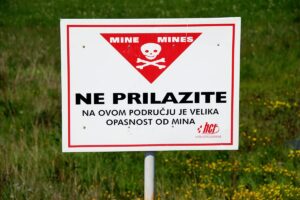The governors of Croatia’s and Montenegro’s central banks met not in a boardroom but in the sunlit Adriatic city of Dubrovnik. There, against the backdrop of ancient stone walls and a shared European ambition, they inked a deal that may seem technical—but speaks volumes.
The agreement, signed by Boris Vujčić, Governor of the Croatian National Bank (HNB), and Irena Radović, Governor of the Central Bank of Montenegro (CBCG), establishes a precise yet potent framework: the cross-border exchange of euro cash, from hand to hand, institution to institution. No digital trail. No account transfers. Just money—euro banknotes and coins, fit and unfit—moving safely and efficiently between two tightly linked economies.
It’s the kind of operational choreography you’d expect to stay behind the scenes. But it’s also a quiet cornerstone of financial cooperation in a region where the euro flows freely, even beyond the official borders of the Eurozone.
“This agreement strengthens the operational bond between our institutions and guarantees high standards in euro cash handling,” Vujčić said, calling the move a boost for regional transparency and stability.
Radović, never one to mince words, framed it with even broader resonance: “It’s more than logistics—it’s European solidarity in action.” Her message was clear: in a region that shares history, currency, and aspirations, functional alliances like this one are the nuts and bolts of progress.
The pact sets up a direct mechanism for exchanging euro cash without requiring deposits into bank accounts. It defines the security protocols, logistics, and technical standards that will govern every shipment, every bundle, every coin tray.
But more than that, it sends a message.
Montenegro, which uses the euro unilaterally and is still outside the EU and the European System of Central Banks, is drawing closer to the core. And Croatia, having recently joined the Eurozone, is extending a confident hand across the border.
“This is about trust, predictability, and readiness,” Radović added. “And about showing that the euro, and the values it represents, don’t stop at formal membership.”
Sometimes, in finance, the big news doesn’t come with a bang—it travels quietly, sealed in armored vans and stamped with central bank insignias. And in this case, it starts in Dubrovnik, and it may just echo across the region.







